
Acute pancreatitis is an acute inflammation of one of the most precious organs in the body. This organ is in charge with production of many hormones and digestive enzymes. In case of acute pancreatitis all the functions of the organ are impaired which has huge consequences on many organs and organ systems in the body.
Acute Pancreatitis: Causes
All the enzymes produced by the pancreas are excreted into the small intestine. Once they reach the small intestine enzymes are engaged in the process of digestion. However, in case pancreatic enzymes are somehow trapped inside the pancreas they start digesting the very organ. Autodigestion leads to inflammation and acute pancreatitis develops. The organ becomes inflamed, swollen and there may be bleeding.
In majority of patients acute pancreatitis develops as a consequence of chronic or excessive alcohol consumption, furthermore, it may be associated with genetic factors, autoimmune problems, damage or blockage of the pancreatic duct or a common bile duct (tubes which transfer pancreatic enzymes from the pancreas into the small intestine), elevated blood levels of triglyceride and accidental injury to the pancreas. Acute pancreatitis may also occur in patients suffering from cystic fibrosis, hemolytic uremic syndrome, hyperparathyroidism, certain viral infection etc. Even some medications can induce pancreatic inflammation.
Acute Pancreatitis: Presentation
The most prominent symptom of the condition is severe pain in the upper left part or the middle of the abdomen. The pain develops after intake of alcohol or fatty foods, is constant and tends to become more intensive and radiate towards the back. Patients feel nausea, sweat a lot, and may develop fever. Additional symptoms and signs include vomiting, clay-colored stool, gaseous abdominal fullness, hiccups, indigestion, jaundice and skin rash.
Acute Pancreatitis: Diagnosis
A patient's medical history and a physical exam is the first thing a doctor investigates. What follows is testing. The blood samples show the elevation of the blood amylase level and increased serum blood lipase level. There is also an increased urine amylase level. Additional tests include complete blood count and comprehensive metabolic panel and certain imaging tests such as abdominal CT scan, MRI or abdominal ultrasound.
Acute Pancreatitis: Treatment
All the patients are hospitalized. Oral intake of food and fluids is ceased and the fluids are administered intravenously. Patients may be also administered pain medicines. Some patients require nasogastric suctioning. In some patients the fluid collected around the pancreas is drained. Surgical removal of gallstones is essential in all patients in whom the pancreatic or common bile duct is blocked.
Acute Pancreatitis: Prognosis and Complications
The condition may be brought under control even though there is also chance of lethal outcome. Fatal outcome generally occurs in hemorrhagic and necrotizing pancreatitis or liver, heart or kidney impairment. Pancreatitis may reoccur.
Complications of pancreatitis include acute kidney failure, acute respiratory distress syndrome, ascites, cysts or abscesses in the pancreas and heart failure.


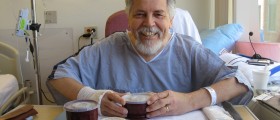

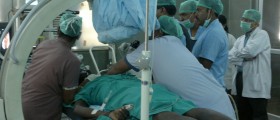


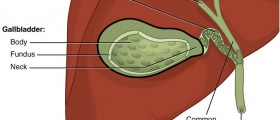


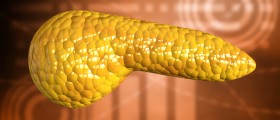
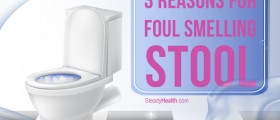





Your thoughts on this
Loading...